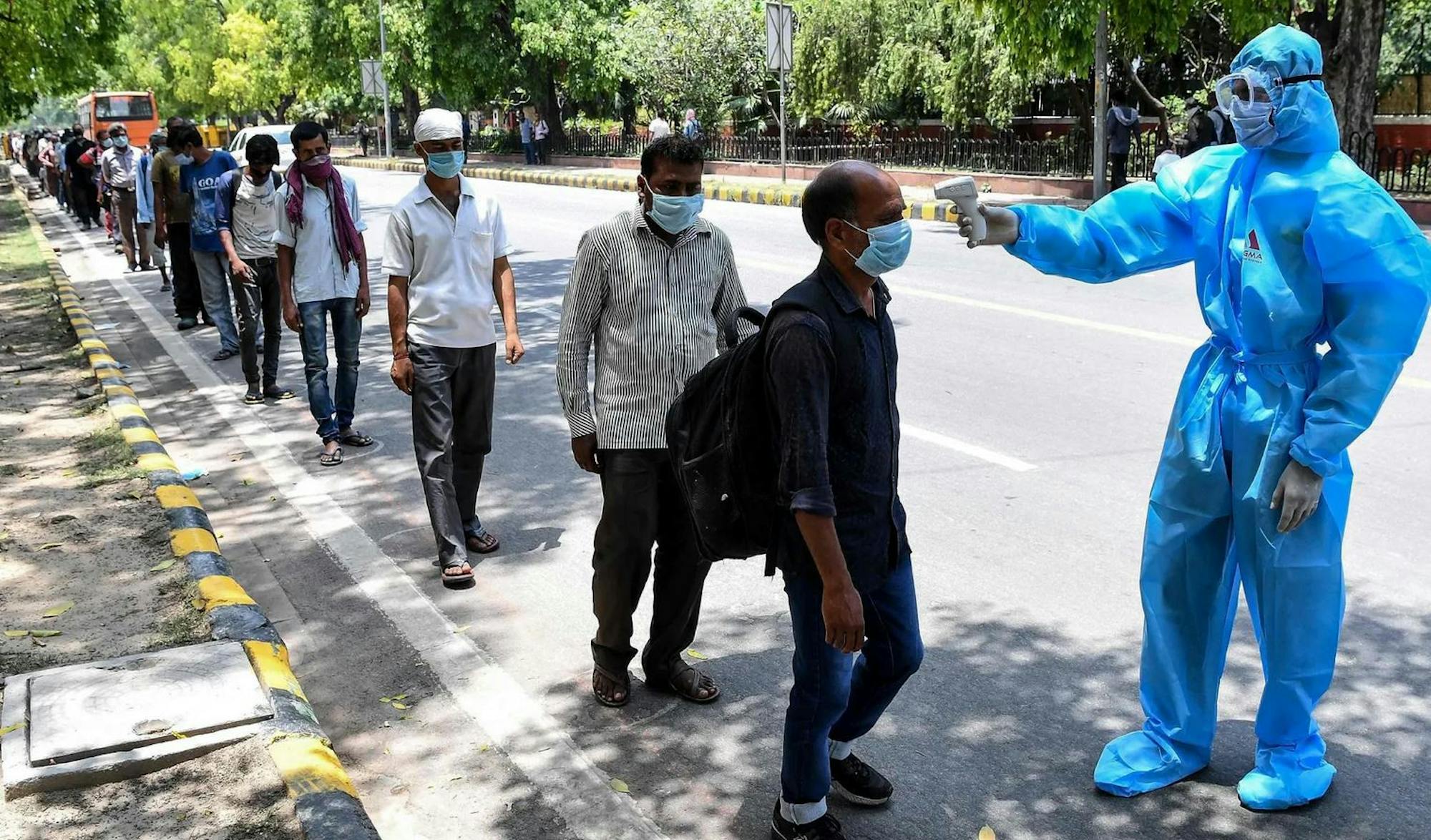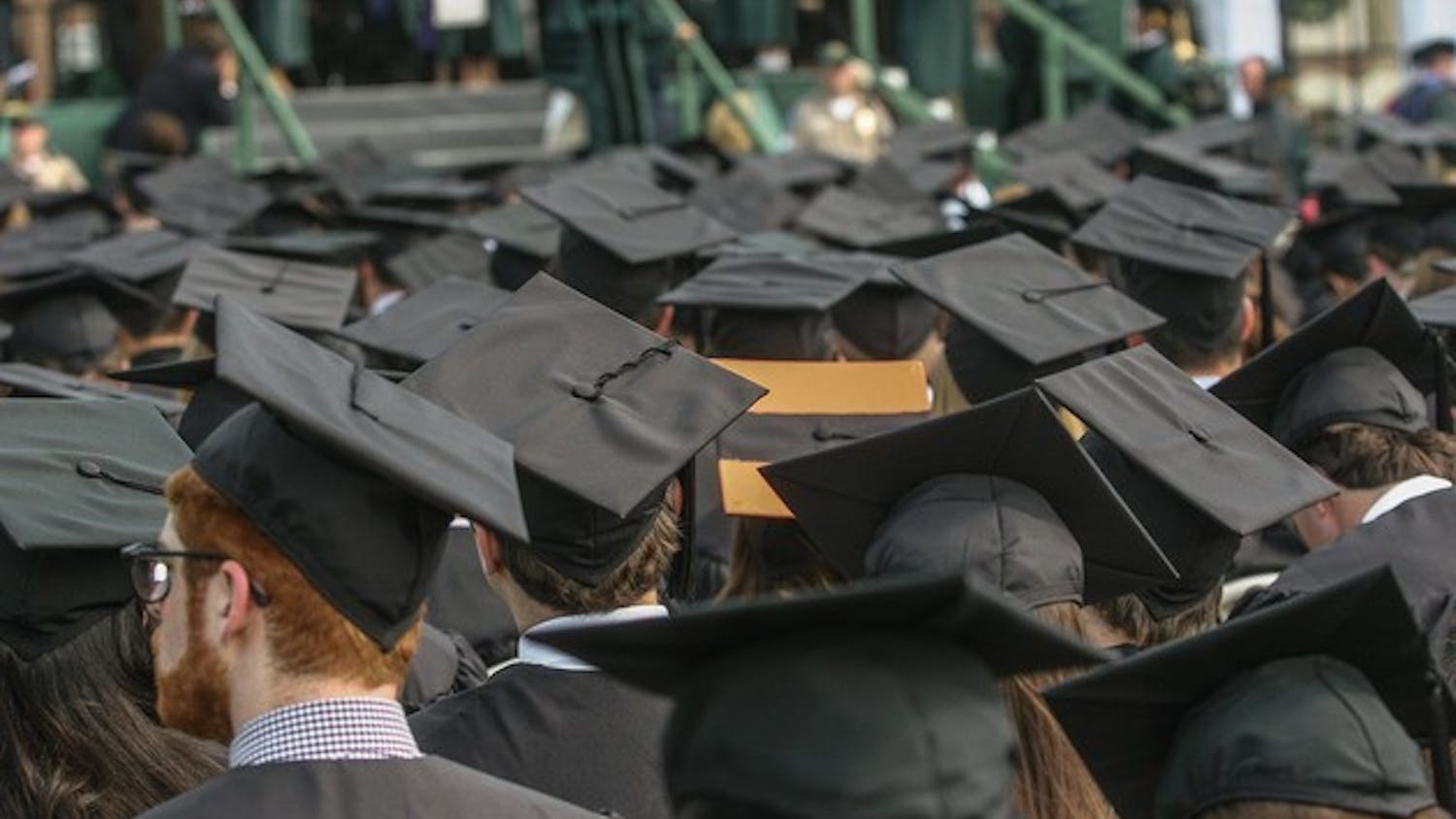As India continues to grapple with the world’s most devastating COVID-19 surge since the pandemic began, the College’s Indian community has responded by organizing fundraisers and compiling numerous resources in support of those affected.
According to data from the New York Times, India’s first wave in the second half of 2020 saw daily case totals peak at 97,894 on Sept. 16. In the following months, cases gradually declined and bottomed out in mid-February, with the country reporting just 9,000 new cases per day.
Only two months later, a meteoric rise in India’s case count shocked the world. Time Magazine reports that the country first broke the U.S.’s morbid record of 300,000 daily cases on April 21 and has not dipped below the previous record since. Starting on April 30, daily case counts have surpassed 400,000 five times — far exceeding any other country in the world — and yet, according to the New York Times, case counts are likely much higher than those recorded in its data set due to underreporting.
The massive second wave has devastated India’s healthcare system, as extreme shortages in oxygen supplies, ventilators and beds have forced hospitals to turn away families. India Today reports that crematoriums — cremation is the traditional funeral rite in Hinduism, the majority religion in India — have been forced to quickly expand to accommodate the number of deaths.
The vaccine rollout in the second-largest country in the world, meanwhile, has been too slow to control the outbreak: Just 2.5% of India’s population is fully vaccinated and just under 10% of the population has gotten at least one shot, according to data from the New York Times.
Saksham Arora ’23, who has lived in the densely populated capital, New Delhi, his entire life, said that his uncle tested positive in early April 2021, well before daily case counts began surpassing global records.
“Especially in Delhi, the situation got so bad that people were… dying outside of hospitals,” Arora said. “And this is not just the poor… these are middle-class Indians, like my mom’s brother. He was hospitalized in the first week of April, and he was sharing an ICU room with five other people, and this was when things weren’t as bad as they are now.”
Although Arora’s family has been fortunate enough to avoid the brunt of the crisis — his uncle recovered, he said — many families have sustained tragic losses.
“It’s absolutely horrifying,” he said. “The cremations are so frequent and so often that people have literal ashes falling onto their houses… [and when] people cannot cremate [their family members], they’re just dumping their bodies in the Ganges River.”
At the College, students with ties to India have responded to the crisis through a number of initiatives. The Dartmouth Club of India is facilitating a fundraising campaign for five nonprofits working to provide medical relief on the subcontinent — Doctors For You, Hasiru Dala, the Pragyata Foundation, Project Mumbai and the Sapna Foundation.
Avanti Maluste Tu ’14, one of the organizers of the fundraiser, said that the DCI knew that it had to do something as soon as news broke of India’s crisis, especially considering the size and strength of Dartmouth’s alumni network.
“There’s basically been a collapse in healthcare systems and governance, and in some places [in India], it’s just complete and utter chaos — and people are paying for it with their lives,” Maluste said. “Dartmouth has an extremely supportive global community… And just as the flagship Dartmouth organization in India, we decided we needed to do something.”
DCI president Raj Koganti said that the group carefully chose the five organizations based on their ability to impact the largest number of people across India.
“The idea is to cover all the most important topics such as oxygen and ventilators, as well as help people who are below the poverty line to meet basic needs and requirements,” Koganti said.
Koganti added that DCI has been working with the Dartmouth alumni network to spread the word. With the alumni network’s support, the group has raised over 748,000 Indian rupees (over $10,000) of their 2,000,000 rupee (roughly $27,000) goal in just two weeks.
Geography professor Aparna Parikh, who grew up and attended college in India, said she has begun to offer academic and professional advising in exchange for donations of at least $50 to one of several organizations she has compiled into a list.
“I’ve donated some money, but it feels very helpless,” Parikh said. “I don’t know how else to help out other than talking to people who are feeling really overwhelmed.”
Abhi Kapur ’21, who hails from Mumbai, India but is currently in Hanover, has begun compiling resources for other Dartmouth undergraduates.
“I’ve got family that has been affected by what’s going on, so it’s just weird, because I was in India for 2020,” Kapur said. “Now it’s a mixture of guilt and relief since I know back home, things would be way worse.”
Kapur said he has also begun compiling and distributing the names of small organizations and families in desperate need of financial support. Many of these families need oxygen cylinders, ventilators or money for medical expenses, he explained.
As of May 6, he said he has donated $1400 — $900 of which he received through Venmo transfers and $500 of which he received from Namrata Ramakrishna ’20 through her job’s donation matching program.
“People have forgotten that 95% of the global population is still suffering and a lot of Western economies are doing nothing about it,” Kapur said.
On May 4, President Joe Biden enacted a travel ban on any non-U.S. citizens or permanent residents traveling from India, according to National Public Radio. The U.S. embassy has stipulated that the ban exempts students on F-1 visas whose course of study begins on Aug. 1 or later, but there will be no exceptions for visa holders with an earlier program start date. For students currently in the U.S., travel to India is highly discouraged — in late April, the Center for Disease Control and Prevention issued a level 4 travel advisory, which indicates that people should refrain from traveling to India at all costs.
Despite the travel advisory, as the summer rapidly approaches, students on F-1 visas face the possibility of being forced to return home. According to Arora, who is currently living in the Upper Valley, sparse housing in the region has left many Indian students desperate for options, with many opting to enroll in summer classes to acquire College housing.
Under normal College policy, on-campus housing is limited to students enrolled in classes for that term. However, Arora said international students taking summer classes are ineligible for Optional Practical Training, a program that allows students on F-1 visas to pursue internships in the U.S. This caveat nearly forced Arora to choose between obtaining College housing and accepting his summer internship offer. Despite its policy, the College ultimately decided to let Arora live in an on-campus dorm this summer but only after “weeks of waiting.”
“It was such a hassle,” he said. “Just five days ago… I got the reply back [from Dartmouth] that I [can] stay on campus. That was the biggest relief of my life.”
Arora said he believes that the College should prioritize providing housing and food security to its Indian students. He also suggested that professors be accommodating of Indian students who might be struggling with their mental health.
“It’s just this feeling of hopelessness that I am so far away, so I feel guilty,” he said. “Why do I get to be so lucky to be sitting here that I can totally detach myself from the situation and basically not see any of [it]? It’s just this incredible feeling of guilt and privilege… which is really hard to deal with, [especially] with classes and all.”
Thomas Brown ’23 contributed reporting.

Manasi Singh '24 is from Cincinnati, Ohio. She is majoring in anthropology and politics, philosophy and economics. At The Dartmouth, she wrote for news and Mirror but later transitioned to the business staff. Manasi now serves as the Publisher.




